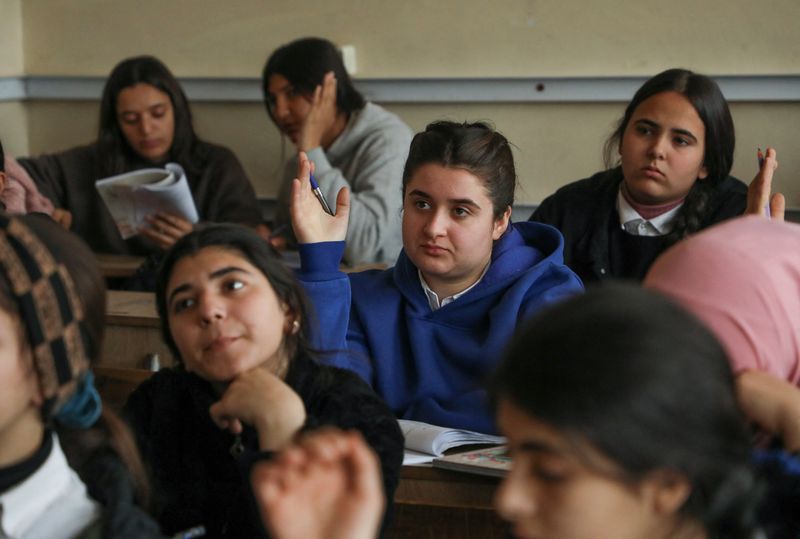
Written by Orhan Karaman
QAMISHLI, Syria (Reuters) – Thousands of women gathered in the northeastern Syrian city of Qamishli on Monday to demand that the new Islamist rulers in Damascus respect women's rights and condemn Turkish-backed military campaigns in Kurdish-led areas in the north.
Many protesters waved the green flag of the Women's Protection Units, an affiliate of the Kurdish YPG militia, which Türkiye views as a threat to national security and wants to disband immediately.
Women's rights activist Sawsan Hussein said: “We demand women's rights in the new state… Women should not be excluded from rights in this system.”
“We (also) condemn the Turkish occupation attacks on the city of Kobani.”
Kurdish groups have enjoyed autonomy in much of the north since the start of the Syrian civil war in 2011. The Kurdish People's Protection Units militia, which leads the US-backed Syrian Democratic Forces armed group, is a major force in the region.
But the balance of power in Syria has shifted away from these groups since the Islamic group Hay'at Tahrir al-Sham invaded Damascus, ousting Bashar al-Assad two weeks ago, and establishing a new administration friendly to Ankara.
Syria's dominant Kurdish groups embrace an ideology that emphasizes socialism and feminism – in contrast to the conservative Sunni Islamist views of Hay'at Tahrir al-Sham, a former branch of al-Qaeda.
Türkiye considers the People's Protection Units an extension of the Kurdistan Workers' Party, which has been waging an insurgency against the Turkish state since 1984, and is considered a terrorist group by Türkiye, the United States, and the European Union.
Hostilities between the SDF and Turkish-backed Syrian forces known as the Syrian National Army have escalated since the overthrow of Assad, with the SDF expelled from the northern city of Manbij.
Syrian Kurdish leaders have warned that Turkish forces are massing for an attack on the SDF-controlled city of Kobani on the Turkish border, also known as Ayn al-Arab.
There is widespread fear among Syrians that the new Damascus administration will gravitate toward hardline Islamist rule, marginalizing minorities and women from public life.

Obaida Arnot, spokesman for the Syrian transitional government, said last week that women's “biological and physiological nature” makes them unfit for some government jobs.
“Yes to supporting the Women’s Protection Units,” Hamrin Ali, an official in the Kurdish-led administration in northeastern Syria, told Reuters during a gathering on Monday. “Yes to preserving the rights and gains of the women’s revolution in northern and eastern Syria.”







